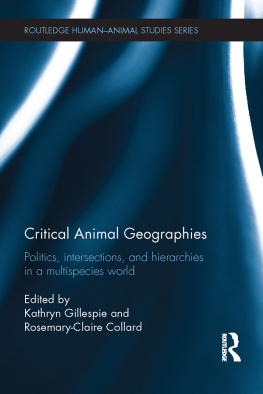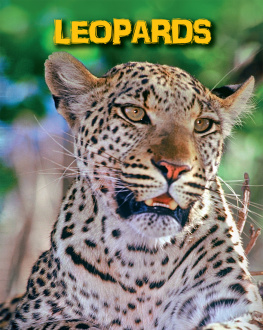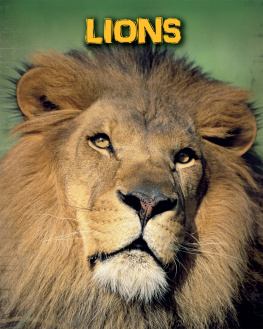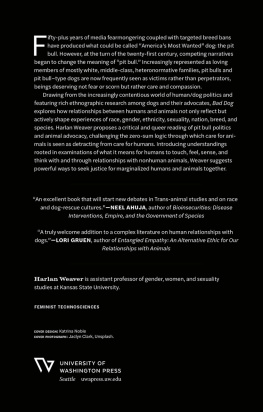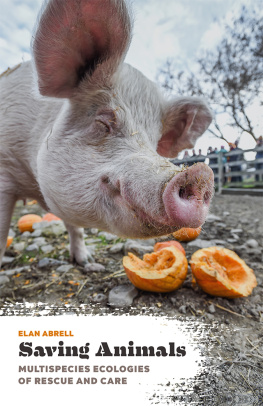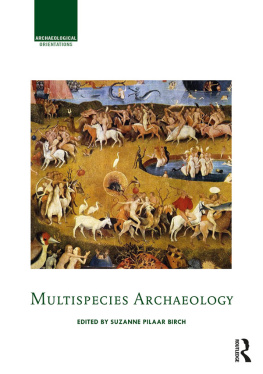Critical Animal Geographies
Critical Animal Geographies provides new geographical perspectives on critical animal studies, exploring the spatial, political, and ethical dimensions of animals lived experience and human-animal encounters. It works toward a more radical politics and theory directed at the shifting boundary between human and animal. Chapters draw together feminist, political-economic, posthumanist, anarchist, postcolonial, and critical race literatures with original case studies in order to see how efforts by some humans to control and order life human and not violate, constrain, and impinge upon others. Central to all chapters is a commitment to grappling with the stakes violence, death, life, autonomy of human-animal encounters. Equally, the work in the collection addresses head-on the dominant forces shaping and dependent on these encounters: capitalism, racism, colonialism, and so on. In doing so, the book pushes readers to confront how human-animal relations are mixed up with overlapping axes of power and exploitation, including gender, race, class, and species.
Rosemary-Claire Collard is an Assistant Professor in Geography at Concordia University in Montreal. Her research looks at capitalism, environmental politics, science, and culture, especially film, with an eye to how they depend on and engender certain humananimal relations.
Kathryn Gillespie is a part-time Lecturer in Geography, the Honors Program,and the Comparative History of Ideas Program at the University of Washington in Seattle, Washington. Her research focuses on the lived experience of animalsin spaces of commodity production (e.g., farming, breeding, sale, and slaughter), with a particular emphasis on those animals humans use for food.
Routledge HumanAnimal Studies Series
Series edited by Henry Buller
Professor of Geography, University of Exeter, UK
The new Routledge HumanAnimal Studies Series offers a much-needed forum for original, innovative and cutting edge research and analysis to explore humananimal relations across the social sciences and humanities. Titles within the series are empirically and/or theoretically informed and explore a range of dynamic, captivating, and highly relevant topics, drawing across the humanities and social sciences in an avowedly interdisciplinary perspective. This series will encourage new theoretical perspectives and highlight groundbreaking research that reflects the dynamism and vibrancy of current animal studies. The series is aimed at upper-level undergraduates, researchers, and research students as well as academics and policymakers across a wide range of social science and humanities disciplines.
Published
Critical Animal Geographies
Politics, intersections, and hierarchies in a multispecies world
Edited by Kathryn Gillespie and Rosemary-Claire Collard
Forthcoming
Urban Animals
Crowding in zoocities
Tora Holmberg
Critical Animal Geographies
Politics, intersections, and hierarchies in a multispecies world
Edited by
Kathryn Gillespie and
Rosemary-Claire Collard
First published 2015
by Routledge
2 Park Square, Milton Park, Abingdon, Oxon, OX14 4RN
and by Routledge
711 Third Avenue, New York, NY 10017
Routledge is an imprint of the Taylor & Francis Group, an informa business
2015 selection and editorial matter, Kathryn Gillespie and Rosemary-Claire Collard individual chapters, the contributors
The right of Kathryn Gillespie and Rosemary-Claire Collard to be identified as authors of the editorial matter, and of the individual authors as authors of their contributions, has been asserted by them in accordance with sections 77 and 78 of the Copyright, Designs and Patents Act 1988.
All rights reserved. No part of this book may be reprinted or reproduced or utilized in any form or by any electronic, mechanical, or other means, now known or hereafter invented, including photocopying and recording, or in any information storage or retrieval system, without permission in writing from the publishers.
Trademark notice: Product or corporate names may be trademarks or registered trademarks, and are used only for identification and explanation without intent to infringe.
British Library Cataloguing in Publication Data
A catalogue record for this book is available from the British Library
Library of Congress Cataloging in Publication Data
Collard, Rosemary-Claire.
Critical animal geographies / Rosemary-Claire Collard, Kathryn Gillespie.
pages cm. (Routledge humananimal studies series)
1. Animals and civilization. 2. AnimalsEffect of human beings on.
I. Gillespie, Kathryn (Kathryn A.) II. Title.
QL85.C645 2015
ISBN: 978-1-138-79150-3 (hbk)
ISBN: 978-1-315-76276-0 (ebk)
Typeset in Times New Roman
by Wearset Ltd, Boldon, Tyne and Wear
Contents
ROSEMARY-CLAIRE COLLARD AND KATHRYN GILLESPIE
PART I
Politics
RICHARD J. WHITE
EVA GIRAUD
CLAIRE RASMUSSEN
PART II
Intersections
KAREN M. MORIN
JOHN JOYCE, JOSEPH NEVINS, AND JILL S. SCHNEIDERMAN
ANASTASIA YARBROUGH
HEIDI J. NAST
PART III
Hierarchies
GWENDOLYN BLUE AND SHELLEY ALEXANDER
JODY EMEL, CONNIE L. JOHNSTON, AND ELISABETH (LISA) STODDARD
IRUS BRAVERMAN
ROSEMARY-CLAIRE COLLARD AND KATHRYN GILLESPIE
Shelley Alexander is an Associate Professor in the Department of Geography at the University of Calgary, Canada. She has conducted field research and GIS modeling for carnivores in the Canadian Rockies since 1990. With an emphasis on wolves and coyotes, her research spans canid ecology, human-wildlife conflict, road ecology, media content, and spatial analysis. Dr. Alexander established the Calgary Coyote Project (2005), examining ecology and human dimensions of human-coyote interactions, and spearheaded Living with Coyotes (an online citizen science tool). Other research collaborations include modeling swift fox critical habitat, road effects on large carnivores (Yucatan, MX), and Painted Dog conservation (Zimbabwe).
Gwendolyn Blue is an Assistant Professor in the Department of Geography at the University of Calgary, Canada. Formally trained in cultural studies, her research centers on manifestations of the public in posthumanist contexts in which the boundaries between humans, animals, and technologies have been called into question. This inquiry takes shape in two domains: public participation in environmental governance, with a focus on climate change, and public engagement with food politics, with a focus on the politics of flesh consumption. Publication topics range from food safety concerns (BSE), human-animal relations, to formal public engagement with climate change.
Irus Braverman is Professor of Law and Adjunct Professor of Geography at SUNY Buffalo. Her main interests lie in the interdisciplinary study of law, geography, and anthropology. Braverman published House Demolitions in East Jerusalem: Illegality and Resistance (Hebrew, Steinmetz), Planted Flags: Trees, Land, and Law in Israel/Palestine (Cambridge University Press, 2009), Zooland: The Institution of Captivity (Stanford University Press, 2012), The Expanding Spaces of Law: A Timely Legal Geography (co-edited with Nicolas Blomley, David Delaney, and Alexandre Kedar, Stanford University Press, 2014), and

